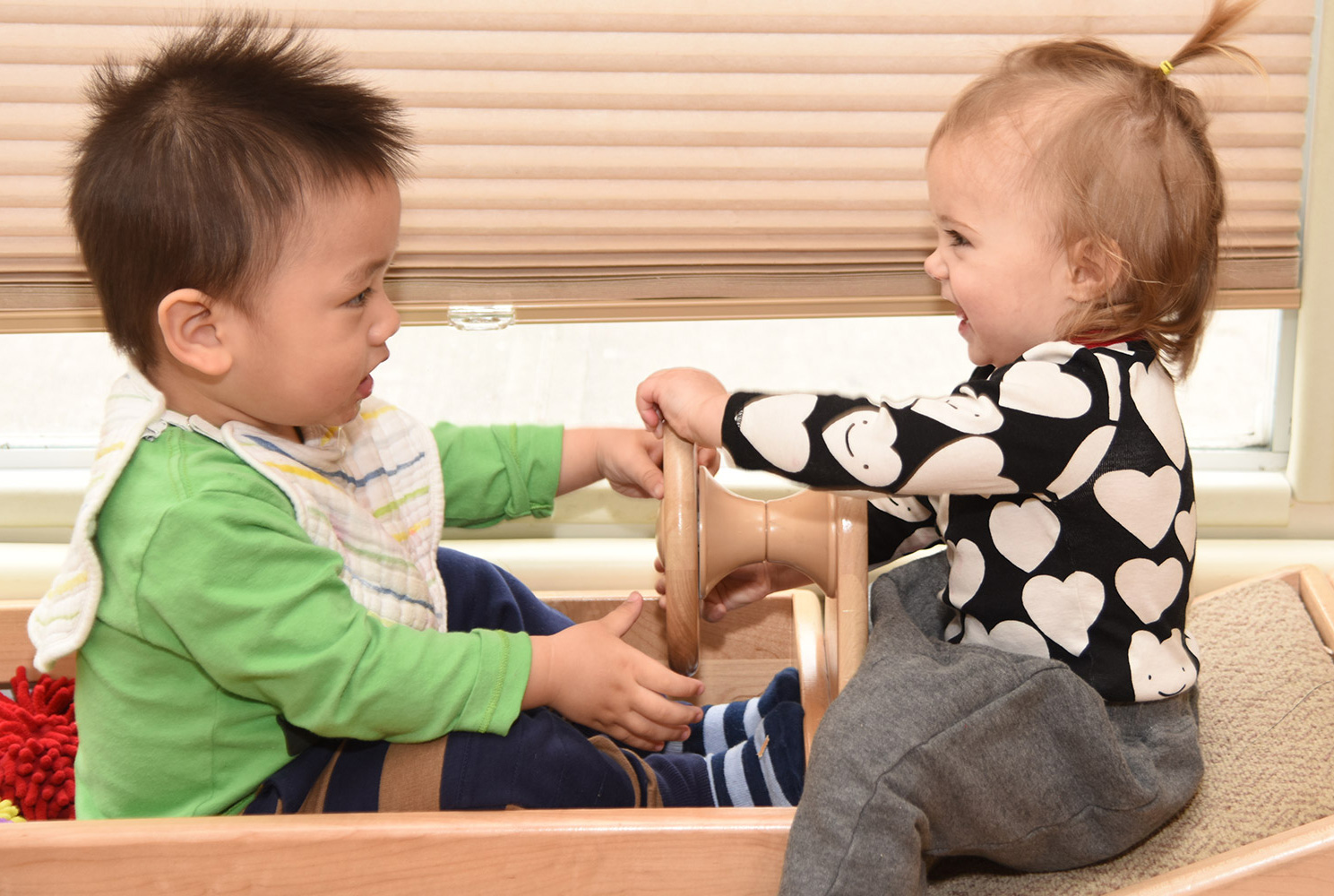Why we chose child-centered, Reggio inspired and play-based instead
A Reggio curriculum is fluid and organic. The curriculum emerges from the interests of children. Since teachers are careful observers of children, they are very familiar with topics that excite their curiosity. They help arrange environments that support children’s navigation through a process of inquiry and discovery of their areas of curiosity and interest. A Montessori curriculum is more rote and prescribed with activities that are self correcting. Children perform prepared tasks independently and at their own pace.
In a Reggio school there is tremendous emphasis placed on communication and relationships. Children are encouraged to collaborate on projects and tasks. Any student may steer learning for the group and children are encouraged to work collaboratively to collect information and make discoveries. Montessori students work on prepared tasks more independently and less collaboratively.
Reggio teachers are co collaborators with children. Their relationship is integral to the learning process. Teachers’ close observation and deep understanding of what themes inspire each child, allows them to guide the children through a process of learning about their area of interest in greater depth. They help scaffold learning for their children. Montessori teachers provide activities with built in controls for error in order to interfere with their children as little as possible. Their primary goal is for children to be independent.
Reggio teachers carefully observe and lovingly document children’s process of inquiry and creativity. They celebrate children’s efforts by using a multitude of ways of sharing this documentation with others including transcribing and displaying words children used to communicate ideas, displaying children’s work, and playing recordings of children’s activities. Montessori teachers are careful observers of their children as well. However, they use this observation and documentation in order to understand where children are at academically and to prepare them for the next task in the prescribed course.
Art is the cornerstone of a Reggio school. Teachers promote and encourage the use of many different artistic media and forms of expression which they refer to as “The Hundred Languages”. Montessori schools in contrast, focus less on the arts and more on engagement with manipulatives.
Reggio
View of the child:
• Views the child as competent
• Embraces who the child is today.
Focus on Community:
Parents, children and educators are partners throughout the educational process.
Teachers are referred to as artful balancers. They plan with colleagues and communicate with children as well as their parents to create an individualized learning track. They thoughtfully document the child’s history of thought, pursuit of information, problem solving, and creation.
Co-constructed learning
Educators are facilitators of learning, acting as researchers and guides. They provide children access to tools and information that will help them think critically in order to identify and solve problems both independently and collaboratively with their peers. Curriculum is organic and fluid as it derives from children’s interests.
Provocations
Materials are chosen intentionally to provoke curiosity and engagement.
Emergent curriculum
Teachers guide children through long term studies. These studies represent deep dives into particular topics of interest to children. Through this process, children employ an inquiry based approach to learning. They learn how to ask a question regarding their area of interest and how to expand the question into multiple questions. They learn to reflect upon their ideas and communicate them to others through multiple modalities. They learn to listen to their peers. Finally, they learn to validate their own ideas and those of their peers and to build upon one another’s achievements.
The environment is the 3rd teacher
The Reggio environment is the third teacher, in partnership with parents and classroom teachers. POTA’s signature soothing and beautiful aesthetic environment, is carefully curated to provide children with a sense of calm and wellbeing, inspire their sense of wonder, pique their innate curiosity, encourage them to ask questions, and empower them to work autonomously on a wide range of skills including literacy, math, science, engineering, and collaboration and healthy interaction with peers. Since so much emphasis is placed on documentation of children’s learning, the work that children are engaged in is thoughtfully reflected back to them in the form of visual documentation throughout their environment. Documentation takes on many forms including photos, text originated by teachers as well as children, drawings and three dimensional representations. The classroom environment inspires children to reflect upon their ideas and work throughout the day and motivates them to build upon it.
Montessori
• Teachers spend more time in the background, serving as guides who observe children with limited intervention.
• Primary goal is to nurture children’s confidence so they become more independent.
• Curriculum is standardized and follows a prescribed course. Children are expected to follow a set of rules.
Why we believe in Reggio
The world is changing so rapidly that it has been predicted that 70% of the jobs our children will have when they reach adult-hood have not been invented yet. Education methodologies must adapt to these new and unprecedented times. The Reggio approach focuses on imparting and developing the skills children will need in order to navigate a world that is ever in flux and difficult to predict. These skills include: independence, observation, problem solving, creativity, out of the box thinking, leadership, team-work, time-management, decision making, grit and perseverance. Adults who possess these skills stand the greatest chance of achieving satisfying levels of personal, social, and economic success.
We believe that when children steer their own learning and learn about topics that they are passionate about and ignite their curiosity, learning is authentic and enduring and children become lifelong learners.
“Education is not the filling of a pail, but the lighting of a fire.”
William Butler Yeats

